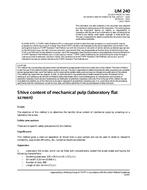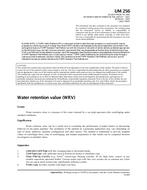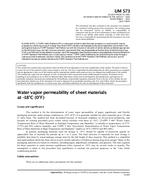Description
“Available lime index,” expressed as a percentage of calcium oxide, is a measure of the alkaline contentof high calcium quicklime and hydrated lime that reacts with hydrochloric acid under the specific conditions described inthis method. In this method, procedures are given for sampling a shipment of lime and determining its available limeindex. Procedures for determining the components of limestone are given in TAPPI T 618 “Analysis of Limestone.”
Two forms of lime are used in the pulp and paper industry: quicklime or unslaked lime and hydrated orslaked lime. Quicklime is produced by incinerating limestone or chemically similar materials, such as oyster shells,leaving a residue consisting chiefly of CaO. It should contain a minimum of fine air-slaked dust which is practicallyworthless because the dust has taken up CO2 from the air and formed the carbonate, CaCO3. Quicklime, when slaked,should disintegrate almost completely, leaving a minimum quantity of unslaked coarse particles. These may be overburntoxides, uncalcined cores, or small stones.
Dry hydrated lime is made from quicklime by slaking with just enough water to cause the lumps ofquicklime to form a powder, the heat of reaction being sufficient to dry the product. On a CaO basis, a ton of hydratedlime is equivalent to about three-quarters of a ton of quicklime.
Dolomitic limestone has a high magnesium content, so that its residue will consist of CaO and MgO andwill have a relatively low available lime index.
Product Details
- Published:
- 01/01/2010
- Number of Pages:
- 4
- File Size:
- 1 file , 44 KB




